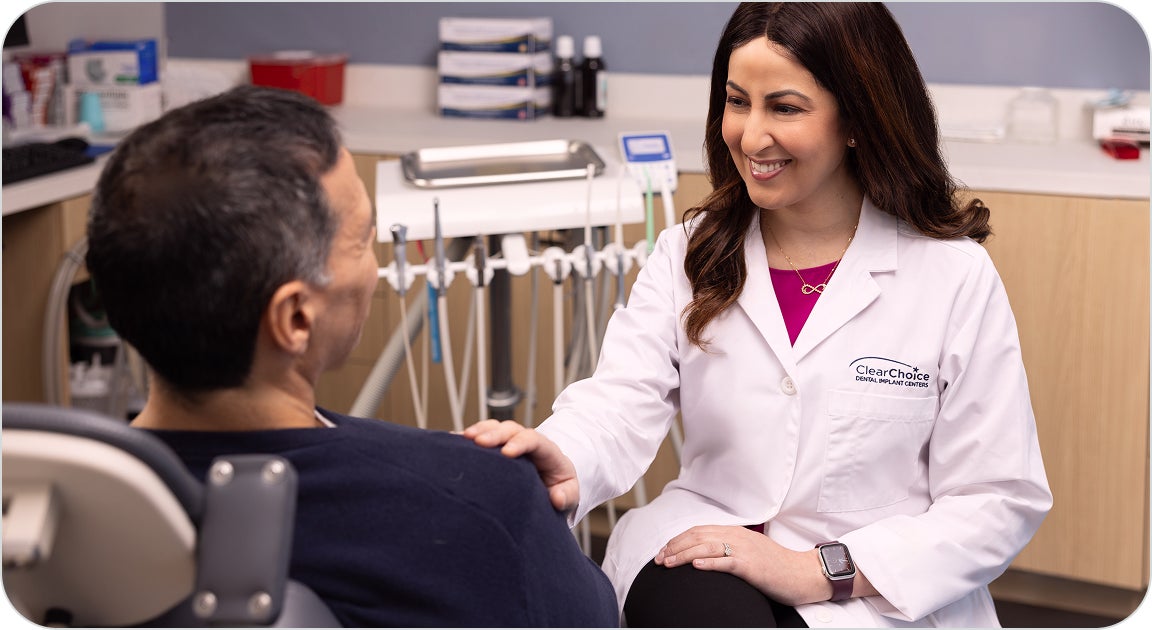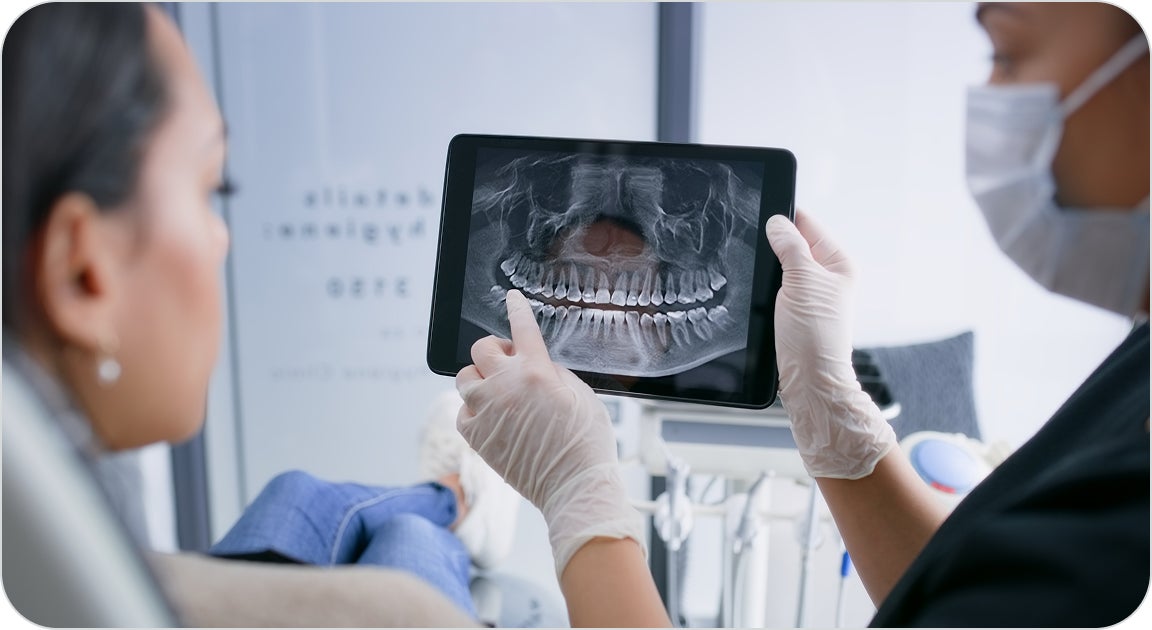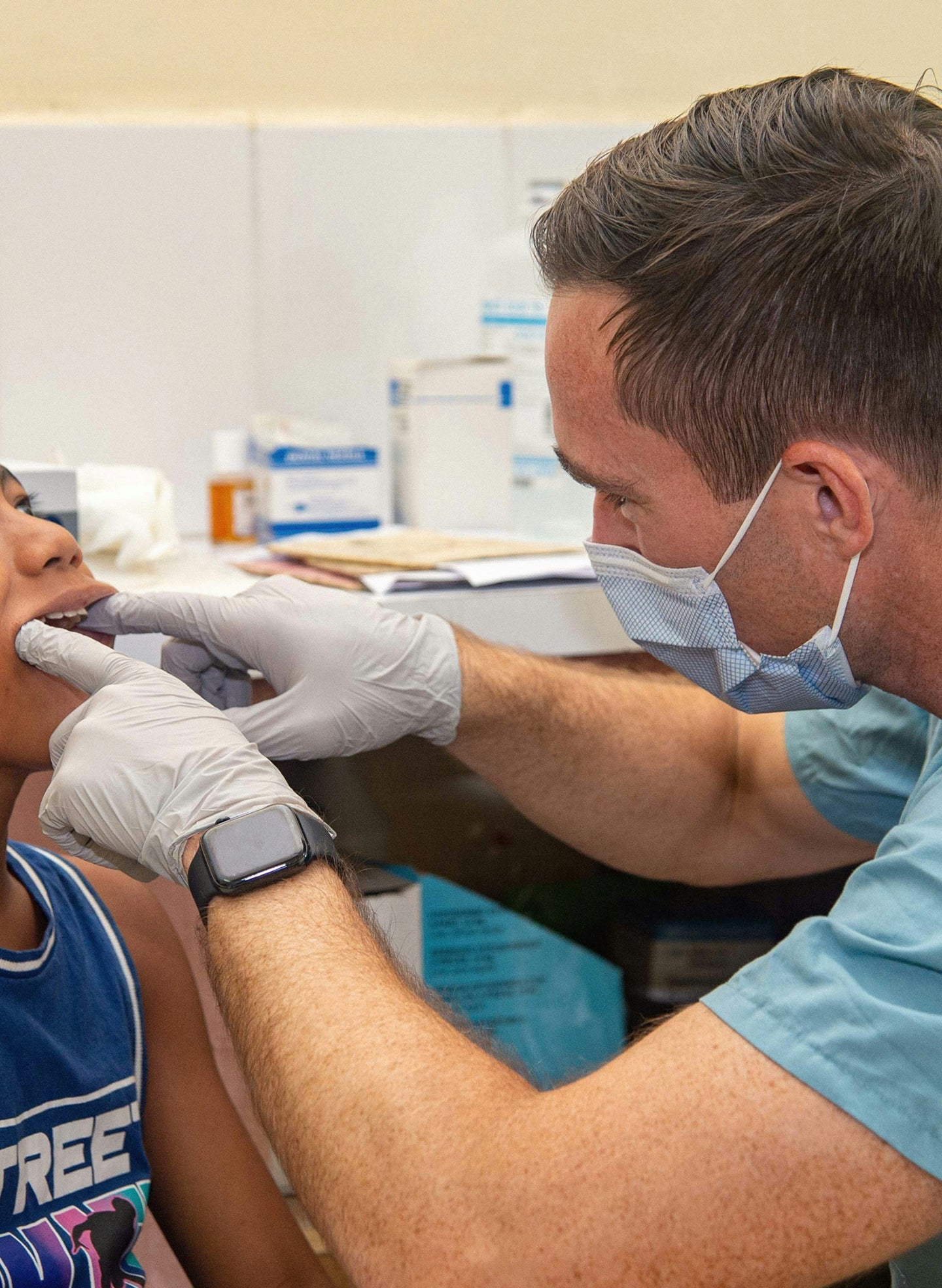Last updated 08.14.2025
Top questions to ask your dental implants provider
Make informed dental implant choices with key questions—covering risks, timelines, success rates, and more.

Learn more about Dr. Alfonso Piñeyro

Getting dental implants is a big decision and a life-changing one. But some patients don’t realize how important it is to ask the right questions before making the commitment.
Whether you’re ready to schedule surgery or just starting to explore the options, this guide is designed to help you ask smarter, clearer questions so you feel confident in your care. From costs and candidacy to recovery and red flags, here’s what to ask (and why it matters).

Why asking the right questions matters
Dental implants are a long-term investment
Unlike other tooth replacement options, implants are designed to last for decades. That’s why who you choose to do the procedure matters as much as the procedure itself. From materials to experience to follow-up care, it’s worth asking every question upfront.
What patients often don’t realize until it’s too late
Many patients are surprised by what recovery actually feels like or they discover hidden costs or confusing next steps after the fact. Asking the right questions now helps you avoid stress and get the results you expect.
Core questions to ask your dental implant provider
What are the risks or side effects I should know about?
Every medical procedure carries a level of risk. Ask how your provider handles potential complications like implant failure, infection, or nerve sensitivity.
Bonus question: How often do you see these issues and what’s your protocol if they happen?
Am I a good candidate, and why?
Dental implants aren’t one-size-fits-all. Factors like jawbone quality, smoking, or certain health conditions can affect eligibility. If you’re not a candidate right now, ask what steps (like bone grafting or medical management) could get you there.
What should I expect during healing and recovery?
It’s normal to experience swelling, discomfort, and changes to your diet. Feel free to ask how long you’ll need to rest, when you can return to normal activities, and what kind of support you’ll get during the healing period. Ask about your immediate and long-term home care.

What type of implant material will be used?
Most implant posts are made of titanium, a reliable and long-term material. Ask your provider why they’re recommending a particular material and how it supports your long-term health and appearance.
How should I prepare for dental implant surgery?
Will you need to stop certain medications? Should you arrange for a ride home? Ask what to expect before, during, and immediately after your procedure so you can feel confident and well-prepared.
Are all procedures done in one office with one team?
Some providers refer you to outside offices for certain steps and procedures of the treatment process. Ask if everything, from consultation and scans to surgery and final restoration, is handled by one team under one roof. (At ClearChoice, it is.)
Cost, timeline, and procedure questions
How long does the full process take?
The full dental implant process can span several months, depending on your case. Complete healing of the gums and fusing of the implant to bone takes months. Your provider should continue to follow-up with appointments, until completion of healing. Ask for a personalized timeline that outlines each stage from your first consultation to the placement of your final teeth.
What will my out-of-pocket cost be?
Ask for a clear, all-inclusive quote. Does it cover anesthesia, follow-up visits, or possible adjustments? Does the office offer financing options?
Be sure to check with your insurance team to see if any portion of your treatment can be reimbursed. Though ClearChoice centers do not accept insurance, some insurance companies will reimburse a claim. If you are looking at full arch treatment, please ask the doctor about Insurance Assurance¹, as there might be an available discount for your treatment.
¹Valid at participating centers only. Discount off fixed full arch dental implants, $2,500 per arch. Maximum discount $5,000. Not valid on prosthodontic appointments or for previous or ongoing work. Cannot be combined with other discounts. Discount taken off usual and customary fees. Contact your local center and show proof of insurance to claim your discount. ClearChoice is not affiliated with any insurance provider, and does not process insurance directly with insurance providers. If you choose to file a claim for reimbursement, you are solely responsible for all communication with your insurance company. Offer ends 12/31/2025.
Will I need bone grafting or prep before surgery?
Some patients need additional procedures to prepare the jawbone for implants. Ask if you’ll need grafting or other treatments, and how that might affect your timeline and cost.
What to know about post-surgery and long-term care

What happens if my implant doesn’t heal properly?
While implant failure is rare, it can happen. Ask how healing is monitored, what signs to watch for, and what the process is for fixing or replacing an implant that doesn’t take.
What should I avoid during recovery?
Certain habits like smoking, eating crunchy foods, or skipping hygiene routines can affect healing. Ask for a detailed list of things to avoid and how long you should avoid them.
How long should the implants last and what affects that?
With proper technique, home care and a healthy lifestyle, dental implants can last 20 years or longer. Ask what you’ll need to do to maintain your results and what could shorten the lifespan of your implants.

Bonus questions you might not think to ask
What questions should I be asking that I haven’t thought of?
A great provider will anticipate your concerns and guide you through the process. Ask if there are any commonly overlooked questions or details that other patients are glad they asked about.
When should I get a second opinion?
Getting a second opinion isn’t a sign of mistrust, it’s a sign that you’re doing your homework. A trustworthy provider will support your right to explore your options before committing.
Conclusion
The right questions can lead to better results and a much more confident experience. Don’t hesitate to speak up, take notes, or ask for clarification. Choosing a provider is about more than just credentials, it’s about trust, transparency, and shared goals.
At ClearChoice, we believe informed patients are empowered patients. Our teams take the time to walk you through every step so you feel supported, not overwhelmed.
Questions to ask your dental implant provider FAQs
What is the biggest risk with dental implants?
Infection and implant failure are possible, but rare. A good provider will walk you through how they monitor and manage these risks.
What should I avoid before or after getting implants?
Avoid smoking, certain medications, and hard foods. Follow all care instructions closely for the best results.
How can I tell if my dental implant is healing correctly?
Mild soreness and swelling are normal. If you notice persistent pain, movement, or other concerns, contact your provider right away.
Are dental implants worth it for back teeth?
Yes—implants in the back of the mouth help with chewing function and prevent bone loss, even if they’re not visible when you smile. Front teeth are not made to withstand biting forces. Not having back teeth can cause chipping and breakage of front teeth which will affect your smile.
What makes one provider better than another?
Experience, transparency, and team-based care matter. The Committee on Dental Accreditation recognizes the dental specialties of prosthodontists, oral surgeons, and periodontists, who have many hours of implant training. Look for specialty providers who answer your questions clearly and involve you in the decision-making process.



